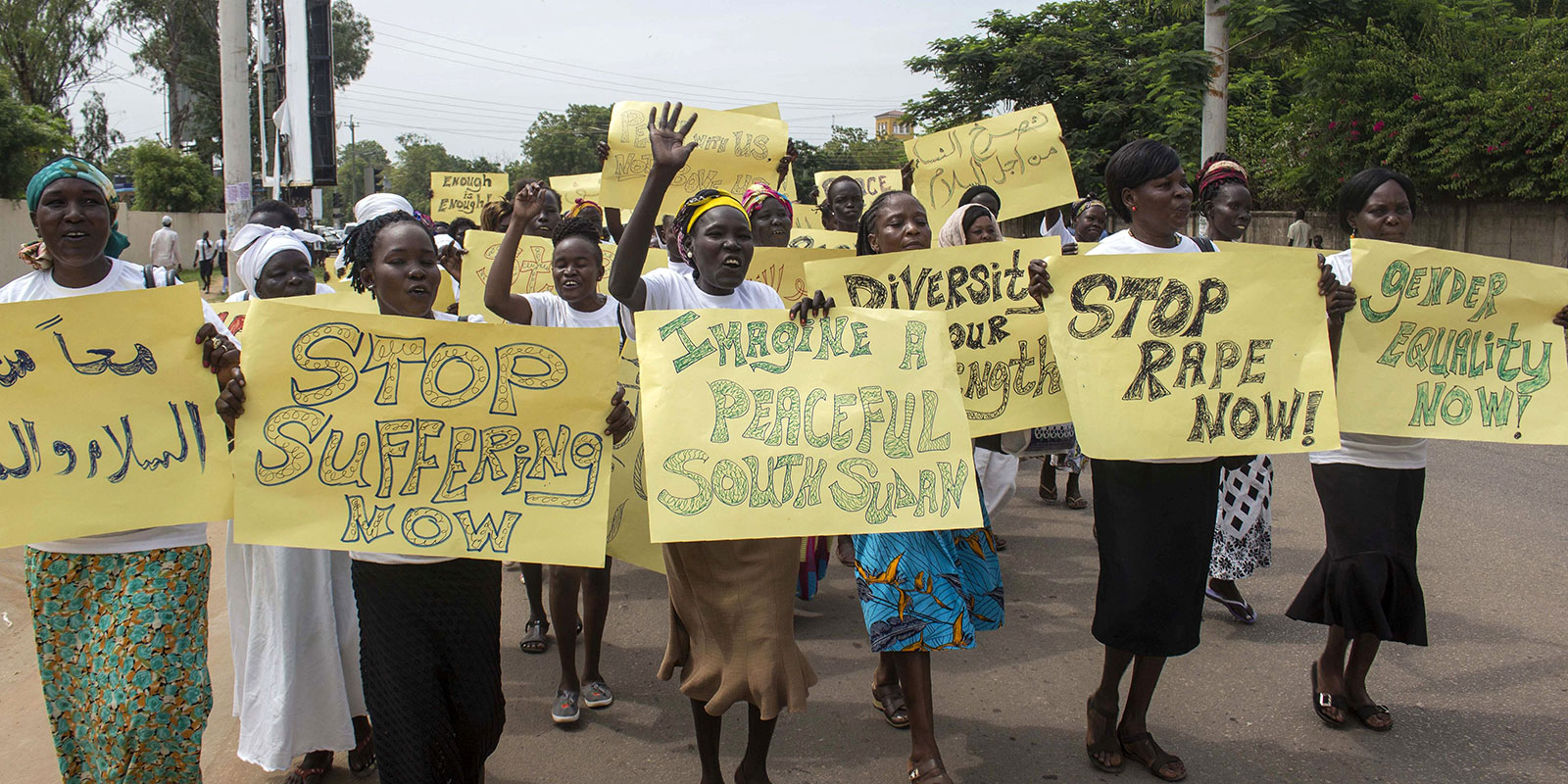This is one example from South Sudan, but how many women’s rights and activities have been restricted in the name of the pandemic? To make it worse we do not know when the pandemic will end, but one thing we know for sure is that women’s rights cannot wait – especially as violence towards girls and women is becoming rampant. Imagine being locked down with your abusers?
We should also look at the impact that the pandemic has had and not allow it to overshadow the damages to women’s rights. @theonlyriya1
Tweet
Just like other parts of the world, the COVID-19 pandemic has traumatized South Sudan. Positive cases of the virus are increasing and are overwhelming an already weak healthcare system. This pandemic came amidst other existing challenges we had been struggling with such as, inter-communal conflicts, sexual- and gender-based violence, poverty, and other insecurities. The pandemic made such challenges worse. For example, schools are now closed, and the rate at which girls are being impregnated is alarming. Many are therefore forced into marriage, giving rise to concerns that even if schools were to re-open, there would be fewer girls going back to school and the inequality gap would further increase.
Advice and warnings did not stop us from going ahead with our protest because rape is war on a girl’s or woman’s body and that is political too! @theonlyriya1
Tweet
The pandemic has also led to an increase in sexual- and gender-based violence. We now receive so many cases of violence, such as the rape of children as young as four years old. Domestic violence is also increasing. Most families here in South Sudan are sustained by women and with the lockdown, women suffer disproportionately and carry the largest share of the burden. South Sudan is a landlocked country which depends on other neighbouring countries, like Kenya and Uganda for most of its goods and food. This has negatively impacted the inflation rate, which has affected women, in particular. In addition, most care work is administered by women and girls. For example when people are sick, it is mainly the women who care for them at home and in hospitals. Even during functions like parties and funerals, the burden of labour is carried by women and girls. I remember, there was a funeral that one of my aunts was going to attend, I warned her against COVID-19 and she told me, if we do not go, who will cook and serve the others? This also puts most women at greater risk of getting infected by the virus. Conversations have moved online to platforms like Zoom and this leaves behind the majority of girls and women who do not have access to the internet.
In our organisation, Crown The Woman-South Sudan, and with support from the UNFPA, we did not allow COVID-19 to stop our work. We established a national toll free gender based violence hotline to support survivors of violence during the pandemic and are able to provide support such as transporting survivors of rape to hospital for medical treatment, and connecting survivors to legal services, though at times we have been told courts are not operating because of the COVID-19 pandemic, which delays justice as well.
We don’t know when the #COVID19 pandemic will end, but one thing we know for sure is that women’s rights cannot wait. @theonlyriya1
Tweet
As we celebrate women this month, let us work towards supporting women’s work. The funding of women’s initiatives should not be cut in the name of the pandemic, but rather increased so as to keep up with the progress made towards women’s human rights. We should not allow the pandemic to reverse the gains that women have worked so tirelessly for. On 5th April, 2020, the United Nations Secretary-General called for a global ceasefire and an end to all violence everywhere so that we can focus our attention and resources on stopping the pandemic. Let’s support his call and focus especially on the war on women and bringing an end to sexual- and gender-based violence.
Riya William Yuyada is the founder of Crown the Woman- South Sudan and Co-founder of PLAY FOR PEACE SOUTH SUDAN.


